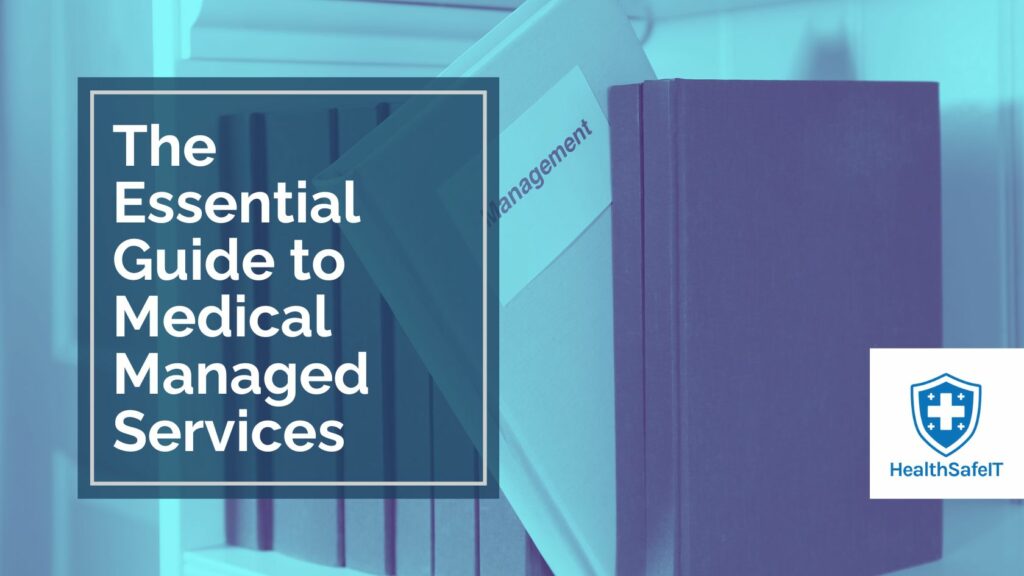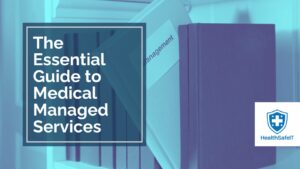
In today’s healthcare, medical managed services are becoming increasingly crucial for healthcare providers looking to streamline their operations, enhance patient care, and stay ahead in a competitive industry. This comprehensive guide will explore the world of medical managed services, their benefits, and how they’re transforming the healthcare sector.
What are Medical Managed Services?
Medical managed services refer to the practice of outsourcing various IT and operational functions to specialized third-party providers. These services encompass a wide range of offerings, from IT support and cybersecurity to IT procurement and project implementation. By leveraging medical managed services, healthcare organizations can focus on their core competency – providing quality patient care – while leaving the complex technological aspects to experts.
Key Benefits of Medical Managed Services
- Cost Efficiency: By outsourcing IT and operational tasks, healthcare providers can reduce overhead costs associated with maintaining in-house IT departments.
- Enhanced Security: Medical managed services providers offer robust cybersecurity measures to protect sensitive patient data and ensure compliance with regulations like HIPAA.
- Scalability: As healthcare organizations grow, medical managed services can easily scale to meet increasing demands without significant additional investments.
- Access to Expertise: Providers benefit from the knowledge and experience of specialized healthcare IT professionals without the need to hire and train in-house staff.
- Improved Patient Care: By streamlining operations and reducing administrative burdens, healthcare providers can dedicate more time and resources to patient care.
Core Components of Medical Managed Services
- IT Infrastructure Management: This includes network monitoring, server maintenance, and help desk support.
- Cybersecurity: Comprehensive security measures to protect against data breaches and ensure regulatory compliance. Your company’s data isn’t targeted only during business hours, so there is also a need for 24/7 cybersecurity monitoring and response at any time an event occurs.
- Project Implementation and Management: Assistance with implementation, maintenance, and optimization of IT projects that move your company forward, enabling collaboration, remote work, and better business workflows.
- IT Roadmap and Budget: The direction your company is moving should align with your technology. Every business is different, but by having a well thought out plan with specific strategic initiatives, your healthcare practice group stands to benefit in a big way.
- User Management and Onboarding: Streamline bringing on new employees and providers with a turnkey staff onboarding system that gives the right people the right tools to be successful from day one.
How Medical Managed Services Improve Patient Care
By leveraging medical managed services, healthcare providers can significantly enhance the quality of patient care:
- Reduced Waiting Times: Efficient IT systems lead to faster patient processing and shorter wait times. This equates to more billable encounters and less wait time for patients, making your company more profitable and increasing better outcomes for your providers.
- Improved Data Accuracy: Well-managed healthcare IT systems reduce errors and improve the accuracy of patient information.
- Enhanced Communication: Medical managed IT solutions facilitate better patient-provider communication and follow-up care.
- Increased Focus on Care: By offloading IT tasks, healthcare professionals can dedicate more time to direct patient care. Technology should slide into the background and not become the focus of work time, but rather a tool enabling healthcare to happen.
Choosing the Right Medical Managed Services Provider
When selecting a medical managed services provider, consider the following factors:
- Healthcare Industry Expertise: Look for providers with specific experience in the healthcare sector.
- Compliance Knowledge: Ensure the provider is well-versed in healthcare regulations and compliance requirements.
- Transparent Pricing: You need a comprehensive budget up front including major projects and upgrades that will be needed in the first 1-3 years of the relationship. Many groups don’t have this already in place, or what they have is wrong, so we guide our partners through this and outline a clear return on investment.
- Scalability: Choose a provider that can grow with your organization’s needs.
- Security Measures: Robust cybersecurity protocols are essential for protecting patient data.
Conclusions and Next Steps
Medical managed services are revolutionizing the healthcare industry by providing cost-effective, scalable, and expert solutions to complex IT and operational challenges. By embracing these services, healthcare providers can enhance their efficiency, improve patient care, and stay at the forefront of technological advancements. As the healthcare landscape continues to evolve, partnering with the right medical managed services provider will be crucial for success in this dynamic field.
If your practice is interested is seeing how medical managed services are used successfully in healthcare practice groups across the US, check out our approach or our case studies. We are always ready to connect with you and see what improvements we recommend for your practice.

